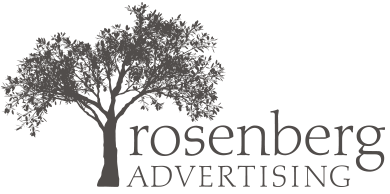It’s a question I often get asked when I’m talking with a potential new client: “Why should we go with your agency and not one of the bigger guys?” I always explain that the way I see it, one of the biggest benefits of working with a smaller agency is, believe it or not, our size! Here’s why:
They’re fun
I’m kind of kidding, but in all seriousness, smaller agencies do have a lot more fun! As with any small business, since so many aspects of their work are intertwined, the employees of a small agency tend to lean on each other a lot more than they would in a bigger organization. This leads to a strong sense of friendship and cooperation in the agency, and since we’re working day in and day out with our friends on projects we enjoy, we have a lot of fun. It definitely benefits our clients — who doesn’t want to work with people they like and have fun with?
They care . . . a LOT
Nine times out of 10, you’ll find that the culture and code of a small agency is deeply focused on customer service, often more so than in a bigger organization. At Rosenberg, we all care to an almost obsessive level about how the work we do affects our customers’ bottom lines. That level of caring is both a prerequisite and a side-effect of working in an environment like ours, and it means that we will do whatever it takes to meet our clients’ needs.
They’re an extension of your business
Many of our clients started out wanting us to handle one or two marketing tasks for them. Over time, though, they have come to rely on us for just about every marketing-related question, concern or project on their plate! The reason for this pattern is that the small, yet highly skilled team we assemble around every client becomes a surrogate marketing department for them. We function as a true extension of the client’s own business, and we care just as much about the outcomes, so there is a great degree of trust in these long-term relationships.
They’re loyal
This isn’t true in every case, but with many small agencies, you’ll see the same familiar faces year after year after year. Turnover tends to be lower in well-run small agencies, in part because a lack of silos means there is room for people to grow in the directions that interest them over time, and in part because good employees are treated well and highly valued. This tends to provide a more stable, long-term relationship between the agency and its clients.
They’re flat (organizationally speaking)
When you’re dealing with a small agency, there usually aren’t enough people to form traditional levels of hierarchy within the organization. However, with the right agency, a flat structure can actually work to the clients’ benefit. Those of us who can accurately call ourselves “fully-integrated” have to field a strong, dedicated team of multi-skilled specialists in every discipline. These specialists are empowered to make decisions and take action quickly, unencumbered by layers of corporate red tape. The result? A nimble, highly-skilled team that can pivot on a dime.
They can move quickly
While all projects require a certain amount of time built in to do the job correctly, small agencies can typically move faster because of their streamlined nature. Unencumbered by tedious meetings and checkpoints with multiple departments, a small agency can work quickly to bring a critical project to completion on a super-tight timeline when necessary.
They’re cost-effective
Almost always, a small agency is the more cost-effective option for a company. This is because small agencies typically have much lower internal costs due to their condensed infrastructure. However, that doesn’t mean the level of service you receive will be lower! I have found that in many cases, the team we field for a client is similarly matched to what a big agency would offer. The only difference is that we don’t have an A, B and C team—only an A team!




